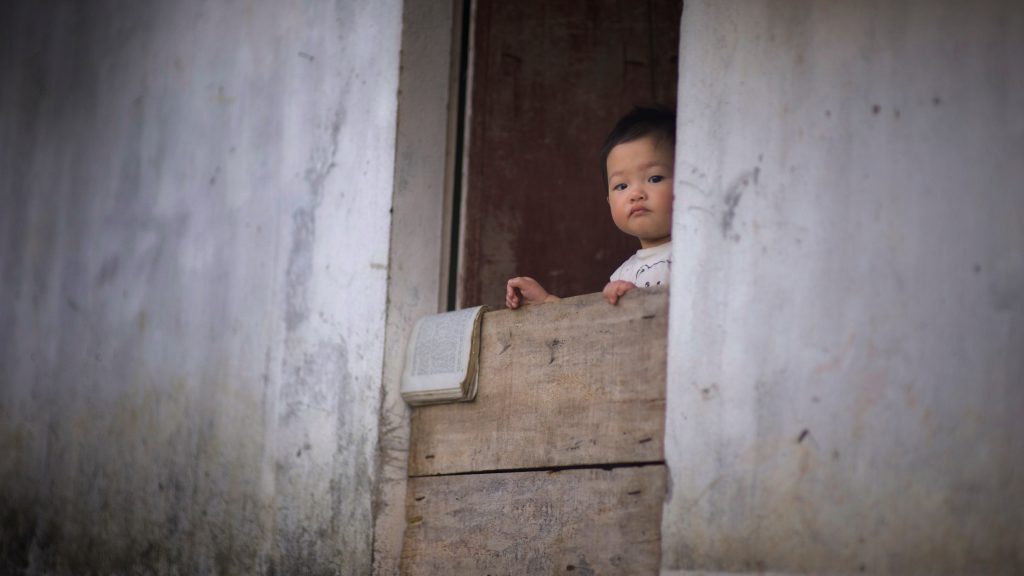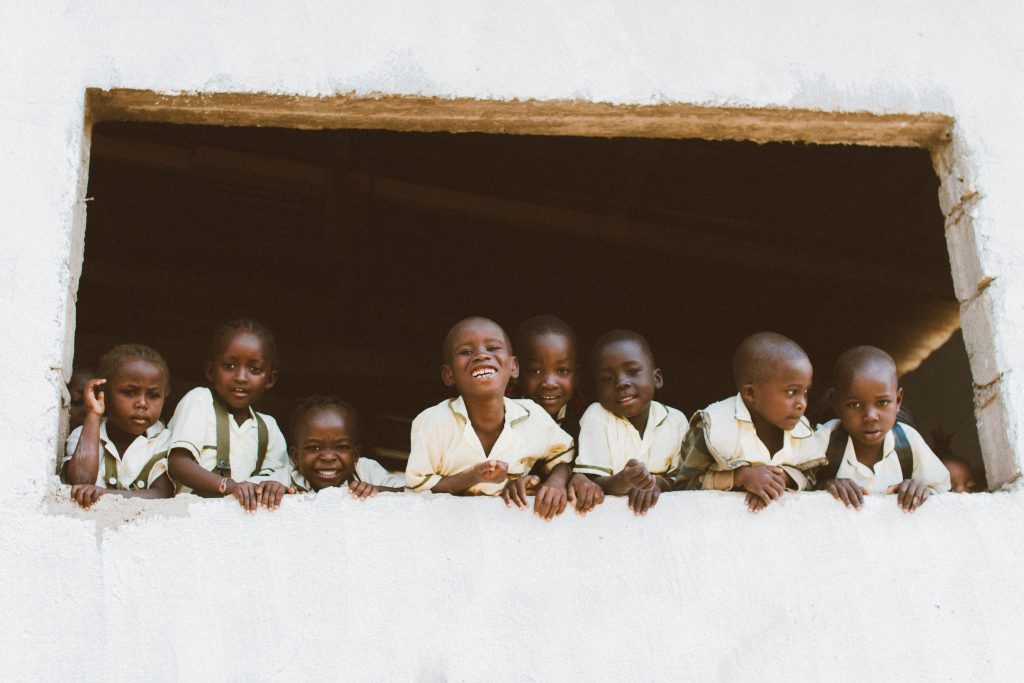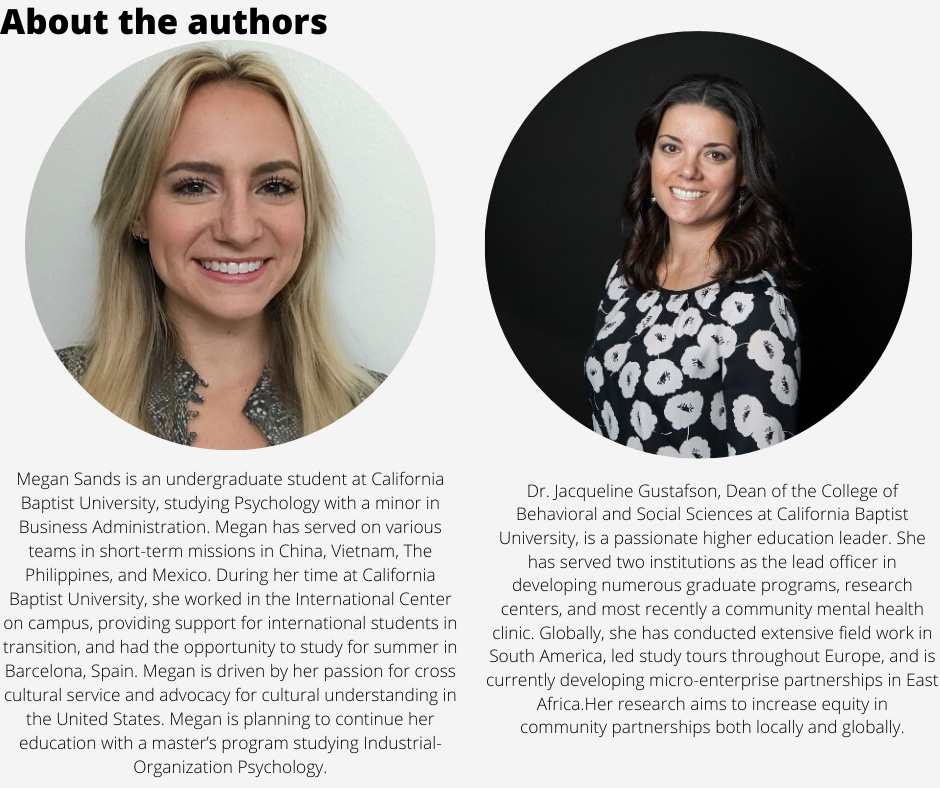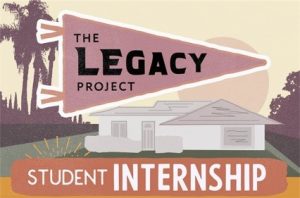By Megan Sands and Dr. Jacqueline Gustafson, EdD

You hop off the plane full of wonder and excitement, eager to change the world. Everything around you feels beautifully unfamiliar; the different smells, language, and horizons draw you in. You look out the window and see the children running towards the car, laughing and grinning ear to ear. They have been awaiting your arrival. For the next several weeks you play, sing, and dance, bringing joy to so many faces. You connect with the people and the culture in an inexplicable way until the van returns to take you home. You’ve been forever changed by the things you saw and the people you served, ready to share your story, to tell the world what this has meant to you. You post about it on Instagram, you share your stories with family and friends. In quiet moments, your thoughts wander, filled with hope that you might one day visit again. But what fills the daydreams of the children in this story? What are their hopes and dreams? Do they dream of the day when you will visit again? Or, possibly another team? Or, maybe they dream about the day when they might get to ride away….
Have you participated in short term mission or service trips? We hope that you have, because it can be an amazing experience for both those serving and those being served! What about the moments and days after the trip? Your world was likely impacted in so many ways. What is often not considered is the way in which those whom we serve, or host communities, are truly impacted by our service, interaction, and presence. Serious consequences can follow our exciting short term visits. A rise in “volunteer tourism” presents concerns of very possible dependency and exploitation of host communities (Hartman et al., 2014). Hartman et al. noted that popularity in these international short term service programs has created a market of selling these experiences as a commodity.

Certainly the intent of such trips, in a variety of different forms, is “doing good.” However, unfortunately some challenges can occur when acts of service are seen as “unquestioned good.” Some responses suggest that the risk to host communities is simply too great, no matter how well intentioned. While others argue against these concerns with the attitude that “at least we care,” “we are doing something, what are you doing?” or “at least we are trying to help.” So what’s the right response? Is there a space for short-term service and engagement? Can the goals of service be advanced while also safeguarding against risks to vulnerable populations?
In response to the concern of protecting vulnerable populations, Dr. Jacqueline Gustafson (CBU), Dr. Amanda Howard (Samford University), and Nicole Wilke (Christian Alliance for Orphans) have developed Principles and Practices for Just Engagement: An Evidence Based Curriculum for Short Term Missions and Service with Orphans and Vulnerable Populations. This online curriculum combines scientifically-informed guidelines for and alternate models of best practices in engagement. The mission of the project seeks to provide access for churches, nonprofits, and university-based programs to educate service providers and reduce risk for host populations. The curriculum provides an alternative perspective and approach to short term service and mission work.

Photo by frank mckenna on Unsplash 
Photo by Adrianna Van Groningen on Unsplash
The project seeks to bring awareness to, and advocate for, best practices in short-term volunteer projects serving orphans and other vulnerable populations. Like the introductory story shows, service can connect people, promote cultural understanding, and improve host communities’ quality of life. The project includes developing and deploying a free online evidence-based curriculum for short-term missions and service intended to benefit orphans and vulnerable populations. Expert opinions have been collected on best practices in their respective fields and experiences. Researchers, church leaders, and nonprofit organizational leaders who have participated in short term missions and service projects speak on various topics to build this curriculum. Ethical considerations are addressed by the experienced individuals in interactive modules to better prepare teams for service. Some important ideas taught in this curriculum include vulnerable populations, cultural humility, child protection, impact and evaluation, media/ethical storytelling, and alternative engagement. We hope to educate and challenge well-intentioned service teams to do the most good in the most ethical way.
What are your thoughts? Share below; we would love to hear from you!

References:
Hartman, Eric, et al. “Fair Trade Learning: Ethical Standards for Community-Engaged International Volunteer Tourism.” Tourism and Hospitality Research, vol. 14, no. 1-2, 2014, pp. 108–116., doi:10.1177/1467358414529443.
Resources:
Fair Trade Principles and Rubric for University Administrators and Faculty: https://compact.org/ftl/
Working with Vulnerable Children: https://cafo.org/ovc/
Short-Term Missions: https://cafo.org/ovc/missions/
Faith to Action (n.d.) Short Term Missions: Guidance to Support Orphans and Vulnerable Children: https://www.faithtoaction.org/wp-content/uploads/Short_Term_Missions_Guidance_Support_Orphans_Vulnerable_Children.pdf
Ethical Short Term Missions & Volunteering (n.d.): https://ethicalmissionstrips.org/ethicalframework

 Jacqueline Gustafson is the Dean of the College of Behavioral and Social Sciences, and Associate Professor of Psychology, at California Baptist University. Her professional passions include innovation in curriculum and program development, increasing educational access and equity for underserved populations, global leadership policy and praxis, and living and leading with intentionality and courage. She began her professional journey, beginning college at 16 and earning her B.A. degree in Psychology from Northwest College, an M.A. in Counseling Psychology with an emphasis in International Psychology from Northwest University, a Post-M.A. in International Community Development from Northwest University, and an Ed.D. in Educational Leadership with a dual emphasis in higher education administration and global studies from Seattle University.
Jacqueline Gustafson is the Dean of the College of Behavioral and Social Sciences, and Associate Professor of Psychology, at California Baptist University. Her professional passions include innovation in curriculum and program development, increasing educational access and equity for underserved populations, global leadership policy and praxis, and living and leading with intentionality and courage. She began her professional journey, beginning college at 16 and earning her B.A. degree in Psychology from Northwest College, an M.A. in Counseling Psychology with an emphasis in International Psychology from Northwest University, a Post-M.A. in International Community Development from Northwest University, and an Ed.D. in Educational Leadership with a dual emphasis in higher education administration and global studies from Seattle University.  This past spring,
This past spring,  Perhaps you have an interest in how your academic pursuits and community interests might align. If so, I’d encourage you to find out more about The Legacy Project or other
Perhaps you have an interest in how your academic pursuits and community interests might align. If so, I’d encourage you to find out more about The Legacy Project or other